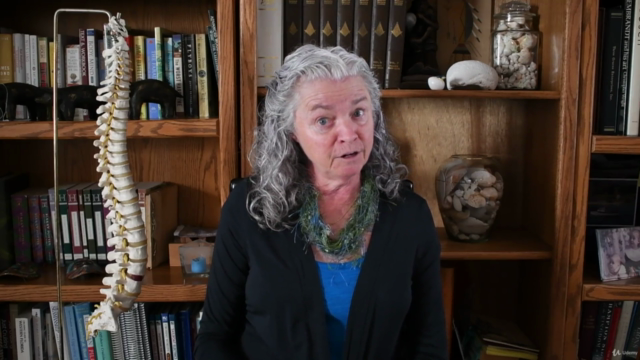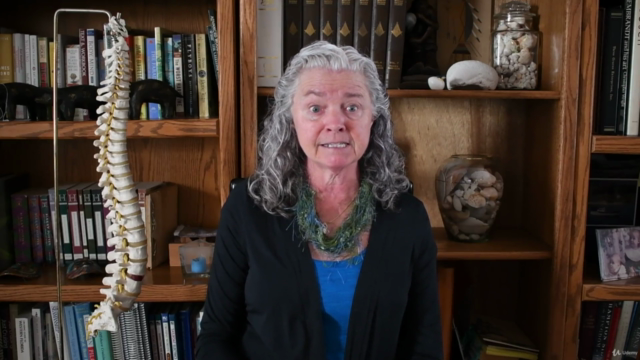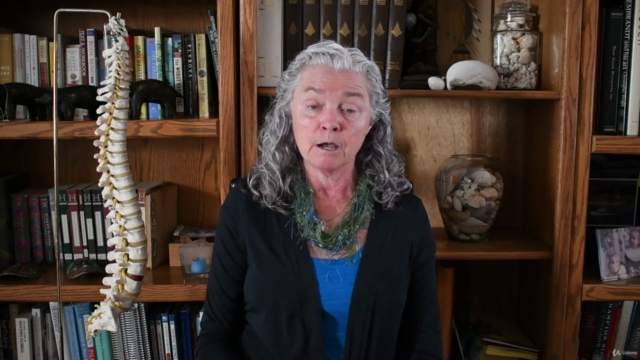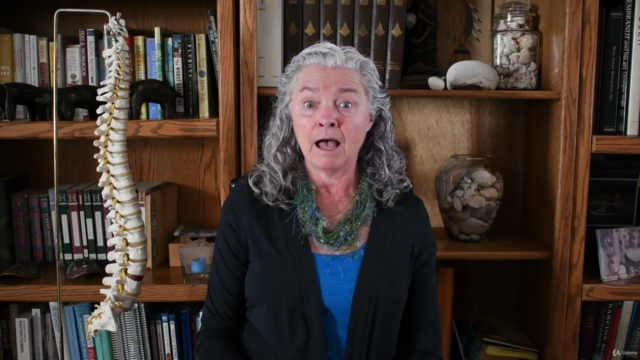Exposing Spinal Pain Imposters: Differential Diagnosis Spine

Why take this course?
🚀 Course Title: Exposing Spinal Pain Imposters: Differential Diagnosis Spine
🎉 Course Headline: An Evidence-Based Approach to Unraveling Complex Spinal Issues
👩⚕️ About Your Instructor: Meet Debra Dent, BPT, Dip Manip PT, OCS (Emeritus), FCAMPT (Retired) - a luminary in the field of physical therapy with over 40 years of experience. Her expertise and knowledge are distilled into this comprehensive seminar series that will elevate your understanding of spinal health and differential diagnosis.
🔍 Course Description: Delaying proper treatment due to poor diagnosis can be detrimental to a patient's well-being. This course, led by Debra Dent, is designed to enhance your diagnostic skills, ensuring patients receive the most appropriate care. With a focus on serious pathologies and diseases of the trunk and spine, this seminar will guide you through the latest evidence in screening, physical testing, and evaluative processes. By attending, you'll gain a deeper knowledge of appropriate screenings for musculoskeletal issues and improve your awareness of differential diagnoses and test results performed by other health professionals.
📘 Seminar Breakdown:
Part 1: Differential Diagnosis of the Spine Unlock the secrets of spinal pain with an in-depth exploration of statistical references, red flags, and the five categories of spinal issues: neurogenic, vasculogenic, spondylogenic, psychogenic, and viscerogenic. You'll learn how to approach history-taking and identify characteristics of metabolic disorders that can mimic spinal pathology.
🎯 Objectives:
- Understand the importance of statistical references in diagnosing spinal issues.
- Recognize red flags and categories of spinal pain.
- Identify metabolic disorder characteristics that resemble spinal pathology.
Part 2: The Thoracic Spine, Visceral Connections, and Vascular Considerations Dive into the complexities of thoracic spine conditions, including viscerogenic and vasculogenic issues, and learn about the reliability and effectiveness of Clinical Practice Guidelines (CPGs) for this region. Abdominal palpation, chest expansion measurement, and dural tests are among the topics covered.
🎯 Objectives:
- Identify musculoskeletal issues of the thoracic region that may be misconstrued as spinal pathology.
- Describe vascular diagnoses related to thoracic spine pain.
- Learn about screening tools and CPGs relevant to the thoracic spine, pelvis, and hip regions.
Part 3: The Lumbar Spine, Pelvic Dynamics, and Orthopedic Insights Explore the lumbar spine, pelvis, and hip regions with a focus on serious pathologies that may masquerade as spinal issues. Discuss the objective differences between vascular and neurogenic claudication and understand the importance of screening tests for the pelvis and sacroiliac (SI) joint.
🎯 Objectives:
- Recognize serious pathologies unrelated to the lumbar spine.
- Describe categories of pelvic fractures and their clinical implications.
- Distinguish between vascular and neurogenic claudication.
- Learn about the five screening tests for the pelvis and SI joint.
🤝 Who Should Attend? This seminar is ideal for healthcare professionals, including physical therapists, physiotherapists, medical doctors, chiropractors, and osteopaths who are looking to enhance their differential diagnostic skills in the management of spinal disorders.
📅 Key Dates:
- Registration Open: [Insert Date]
- Course Start Date: [Insert Date]
- Deadline for Early Bird Rates: [Insert Date]
📫 How to Register: Spaces are limited, so secure your spot today by visiting our website or contacting us directly. Don't miss this opportunity to deepen your understanding and clinical skills in the field of spinal health!
🌟 Testimonials from Past Participants: "Debra Dent's seminar was a game-changer for my practice. The evidence-based approach and practical examples have significantly improved my diagnostic accuracy." - John A., PT
"This course has provided me with a new lens through which I view spinal issues, emphasizing the importance of a thorough differential diagnosis." - Maria B., MD
Join us for an enlightening journey into the complexities of spine health and differential diagnosis. Let's work together to improve patient outcomes and expand our professional expertise! 🌱
Note: This course content is intended for healthcare professionals with a background in spinal health and diagnosis. It is essential to apply the knowledge gained responsibly and in accordance with your scope of practice and local regulations.
Course Gallery




Loading charts...